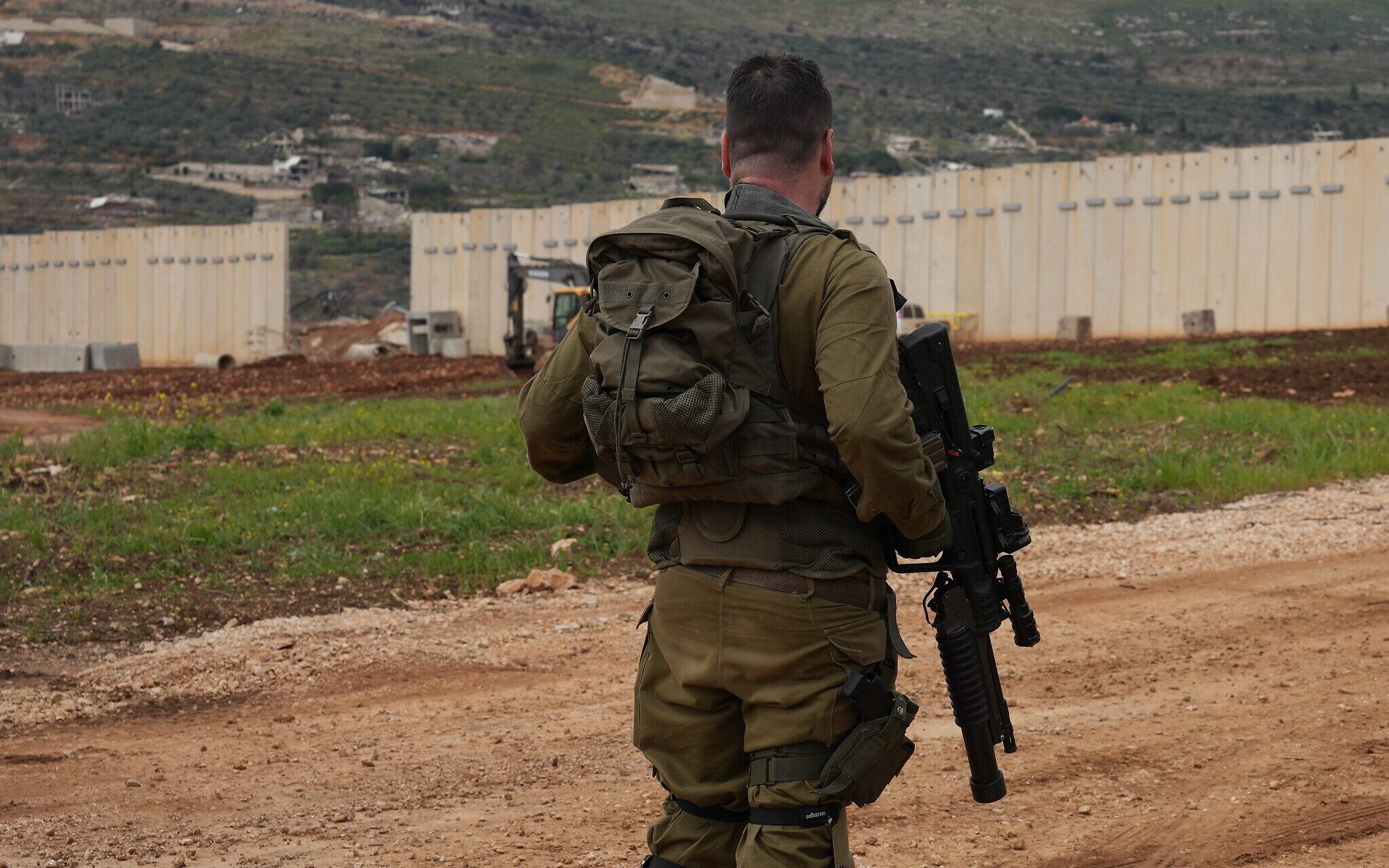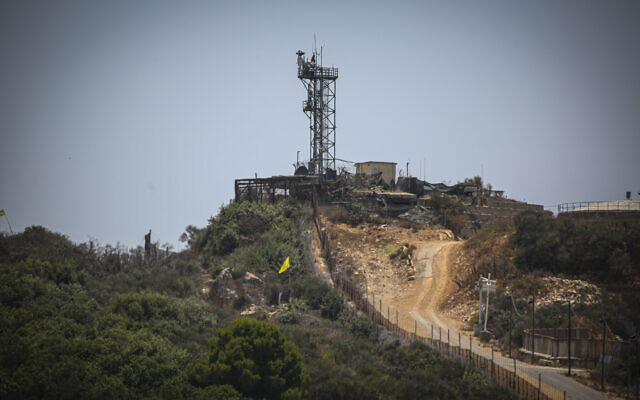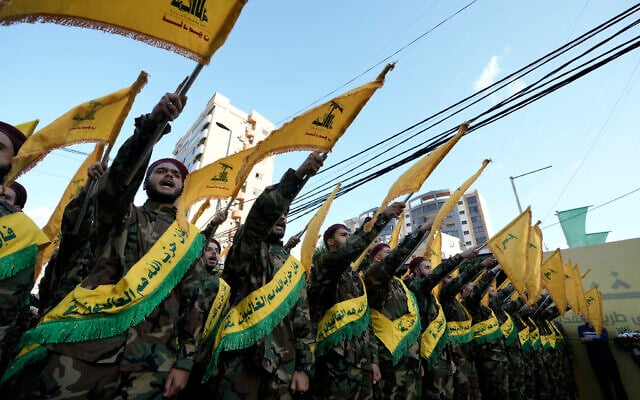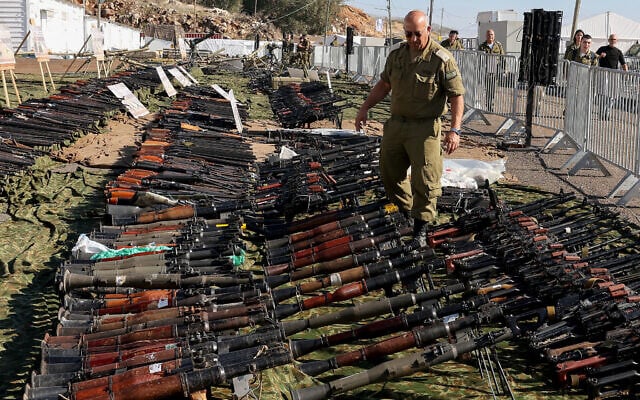



The Israeli military was warned ahead of the events of October 7, 2023, that there were severe deficiencies in the country’s northern border defenses, according to a state comptroller report released Tuesday.
In his report, State Comptroller Matanyahu Englman said that in July 2023, he found that many Israel Defense Forces posts on the northern border lacked equipment and infrastructure, and that troops were not being trained properly.
In its response to the report, the IDF acknowledged the value of oversight but emphasized that the comptroller’s conclusions were drawn from a pre-war inspection and do not accurately represent the current realities on the ground.
“Recognizing the importance of continuous security presence, the IDF has allocated additional resources and weaponry to frontline troops,” the IDF said in a statement on Tuesday, indicating that efforts have since been made to enhance border security.
According to Englman, the IDF initially responded to his report a week and a half before Hamas invaded southern Israel on October 7, 2023. The IDF confirmed this claim in its Tuesday statement.
A day after the Hamas onslaught from Gaza, Hezbollah opened fire from Lebanon on northern Israel unprovoked, opening a second front that remains active. A year after the outbreak of the ongoing war, the IDF revealed that Hezbollah had plans in place for thousands of terrorists to invade northern Israel days after the Hamas attack.

Englman’s snap inspection focused on Israel’s northern border defenses in response to Hezbollah’s increased military activity in the first half of 2023, with the comptroller adding that it reflected the general situation across all of Israel’s borders.
He said that Hamas’s success in invading Israel from Gaza on October 7 was a result of “many significant failures in the defense of the country’s borders.”
Several alarming discoveries were made during the inspection conducted at eight IDF outposts, according to the report.
Englman found that many IDF outposts had inadequate resources for effective defense, despite increased activity from Hezbollah. In some areas, military patrols were conducted in unarmored vehicles, and soldiers were not equipped with necessary weapons systems.

Furthermore, the inspection uncovered discrepancies in intelligence-gathering capabilities, a lack of proper training for both reserve and standing army soldiers, and gaps in infrastructure and security measures at the outposts and along the border.
In addition, the report stated that construction of an upgraded northern border barrier, which began in early 2018, had yet to be completed at the time of the inspection, leaving sections of the border at increased risk of infiltration.
Englman said that the report “should have served as an urgent warning about these critical security gaps,” as a draft was presented to Prime Minister Benjamin Netanyahu, then-defense minister Yoav Gallant and then-IDF chief of staff Lt. Gen. Herzi Halevi prior to October 7.
The Knesset’s State Control Committee decided to delay publishing the report until now, Englman said.

The report cited multiple incidents as evidence of Hezbollah’s escalation in the first half of 2023, including an invasion and bombing attack at the Megiddo Junction in March, injuring one Israeli civilian, a barrage of rockets from southern Lebanon at Israel during Passover in April and the launch of an anti-tank missile at an IDF patrol vehicle from Mount Dov in July.
The report recommended immediate action to address these critical shortcomings in 2023, well before Israel eliminated Hezbollah’s leadership and IDF troops pushed into southern Lebanon in late 2024.
Among the suggested measures, Englman called for the prime minister and the security cabinet to reassess the defense policies regarding Lebanon, particularly in light of Hezbollah’s ongoing activities. He also urged the IDF to adjust its operational readiness in the northern region to better prepare for similar threats in the future.
A day after Hamas’s October 7 attack, Hezbollah began launching rockets at Israel, saying it was doing so to support Gaza in the war. A year after the onslaught, the IDF revealed that around 3,000 terrorists were stationed near the Lebanon border as part of a Hezbollah plan to advance into the Galilee and replicate the devastation caused in the south in the days following Hamas’s attack.

Amid an Israeli ground offensive in southern Lebanon late last year, the IDF captured a massive amount of Hezbollah weapons and equipment, totaling some 85,170 individual items, that would have been used in such an attack.
The situation on the northern border has remained volatile as Israel seeks to reach normalization with Lebanon, an Israeli official stated last month. According to the Prime Minister’s Office, Israel and Lebanon agreed to open negotiations to delineate the border between the two countries.
In February, Israel withdrew all its forces from southern Lebanon, except five strategic points, saying it had received a green light from the US to remain at those posts and citing the need to prevent Hezbollah from returning to the area and threatening Israel.
Along with the deficiencies found in the IDF’s posture along the Lebanese border, Englman’s report also highlighted weaknesses in the Home Front Command’s cybersecurity measures.

The report claimed there were repeated security flaws, indicating that the Home Front Command failed to address previously identified vulnerabilities.
“The Home Front Command does not comprehensively document these deficiencies and only partially tracks their resolution, contrary to its own cybersecurity defense framework,” the report stated.
Englman emphasized that the report “does not replace a state commission of inquiry into the failures of October 7,” which would examine all relevant parties, including the political, military and civilian leadership.
In March, coalition lawmakers blocked a bill to establish such a commission, with the Knesset voting 39-51 against the legislation proposed by National Unity MK Orit Farkash Hacohen. Netanyahu has publicly campaigned against forming such a probe, claiming it wouldn’t be trusted by much of the public, despite opinion polls consistently showing overwhelming support for a state inquiry. Netanyahu hasn’t detailed which sort of probe he would support.
